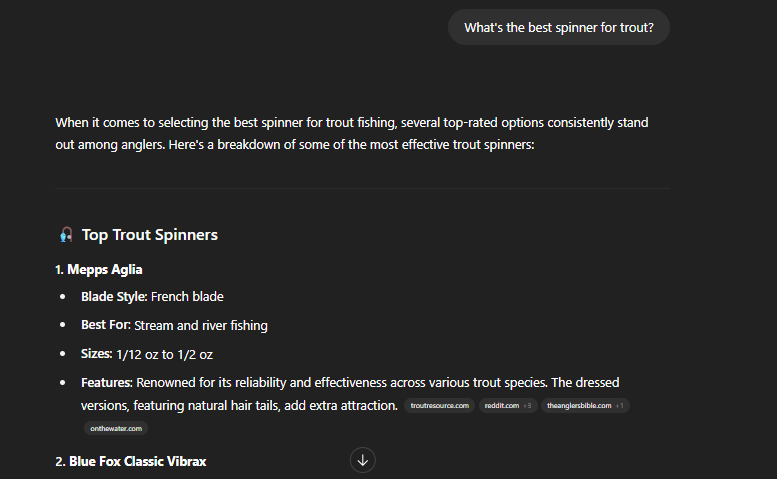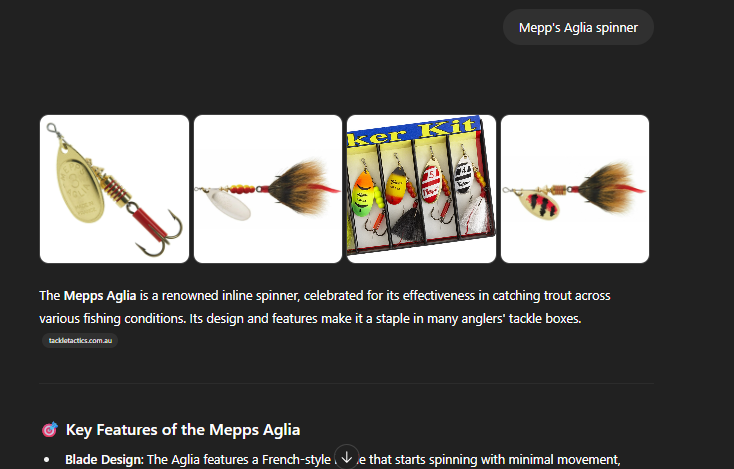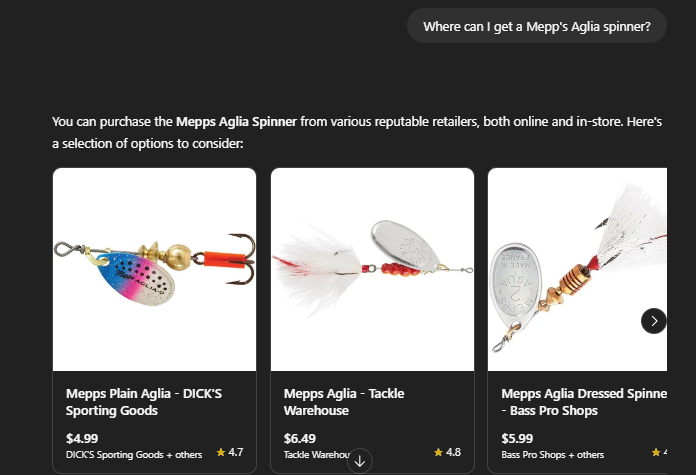How to Use ChatGPT’s Search Engine

Every couple of days, I either hear someone ask about how ChatGPT is replacing Google as a tool for general search, or read something about it. Occasionally these questions take on something of the color of how viable ChatGPT is for finding products from the perspective of an online shopper.
While it’s true that the traffic that Google gets in terms of sheer utilization utterly dwarfs ChatGPT’s, OpenAI has recently rolled out a new “search engine” feature that offers some promise to potential online shoppers, specifically to help put them in touch with products that meet their needs.
This brings up the question of how to use ChatGPT’s search engine, not just as a consumer but also from the perspective of a beleaguered eCommerce entrepreneur whose ambition is to stay competitive. I may be able to shed some light on both.
Is It Good? A Sneak Peek into How It Works
First, let’s take a look at how ChatGPT’s search engine works, solely from the perspective of someone whose aim is to shop online.
I’ll keep this in my wheelhouse and offer some visual cues of the experience, just so I can weigh on it from a professional perspective.
To try things out, I searched for “What’s the best spinner for trout?” Below is a screenshot of some of the output:

I can confirm, those are some good spinners for trout. Not sure I’d say either of them is “the best” but they are certainly both contenders for that title. I’ve used them; they catch fish.
Just to experiment, I wanted to see what ChatGPT could do with a short-tail query based on the output it gave me, so I looked up “Mepp’s Aglia.” You can see the output below.

Honestly, not bad results, but completely underwhelming. It’s little different from what I’d get in Google, in fact, I’d even say a little bit worse. Google has more and different types of search features that are more useful to someone like me in the position of a shopper. I, perhaps unlike some shoppers, don’t like to be spoon-fed, and it seems like that’s what ChatGPT’s doing here.
All the same, I asked it about a specific model of lure, so I can’t blame the search engine too much on the generality of what it gave me back.
To drill down a little, I incorporated that keyword into a more targeted, longer-tail search query, “Where can I get a Mepp’s Aglia spinner?” and you can see the results below.

Not too bad, but also not overwhelmingly great. You can see the results are formatted much like Google ads, with links to well-known retailers like Dicks, Tackle Warehouse, and Bass Pro. Again, can confirm these are legitimate sources.
So far, so good. At least good enough. ChatGPT’s results are, even if lacking by Google’s standards, legitimate enough. It did give me serviceable answers to my queries, which means that for other shoppers, it will do the same – or at least, the potential is there.
That about concludes my experimentation as a potential shopper – which brings me to the significance of all this from the perspective of an eCommerce merchant.
What ranking signals or other criteria does ChatGPT use to assemble results, and how can I find out how to use ChatGPT’s search engine, as a business owner?
What ChatGPT Considers: How to Use ChatGPT’s Search Engine (What It Ranks)
Naturally, what follows is how to optimize for ChatGPT’s search engine, right? At least, if you’re here because you want to know how to use ChatGPT’s search engine.
Good news: straight from OpenAI, here are some of the things it uses as “ranking criteria” – what we would call ranking factors or ranking signals in the world of search engine optimization.
Specifically some of the factors it uses with respect to eCommerce websites and products are:
- Product descriptions: As in the realm of “regular” eCommerce SEO, product descriptions should be informative, contain relevant queries and keywords, and provide useful details about the product specifications. Where possible, descriptions should provide succinct answers to common long-form queries, in keeping with AEO best practices.
- Product reviews and ratings: This is an interesting aspect of ChatGPT SEO because it is something over which digital marketers and website administrators don’t have direct control, especially if ChatGPT is scraping product reviews from multiple sources. It does make reputation management that much more critical, as presumably ChatGPT will curate its results based on the frequency of positive reviews, or perhaps based on the ratio between positive and negative reviews.
- Pricing: ChatGPT’s search functionality delivers outputs based on criteria that account for price. For instance, shoppers could search for the lowest price, in which case ChatGPT’s outputs would be delivered accordingly.
Now that we’ve gotten the official word out of the way, here are some other things I would assume help with ChatGPT search engine optimization:
- A website that has CMS pages dedicated to answering questions about the products it sells.
- A steady content stream that, even if it is not directly relevant to the products in terms of keywords associated with them, is useful to readers.
- A strong domain authority with good user engagement metrics.
- Basically anything else that helps SEO.
It all ultimately condenses down to the latter bullet point, since what ChatGPT is using is basically restricted to what shows up in the search results. Whether ChatGPT has access to web pages that are not indexed is not a question for which I have an answer, but if I had to bet one an answer, it would be no.
Which means, ultimately, that what ChatGPT search outputs is directly related to what ranks effectively in Google (and possibly through other search engines on the internet) along with websites that have the most organic visibility, overall.
For More Information on Answer Engine Optimization
To offer as simple an answer as possible to the question of how to use ChatGPT’s search engine, it would be this: if it’s good for SEO, it’s good for AEO, which is basically what the ChatGPT search engine is.
For more information, get in touch with one of our digital marketing specialists or see my previous post, Answer Engine Optimization: A High-Level Guide.